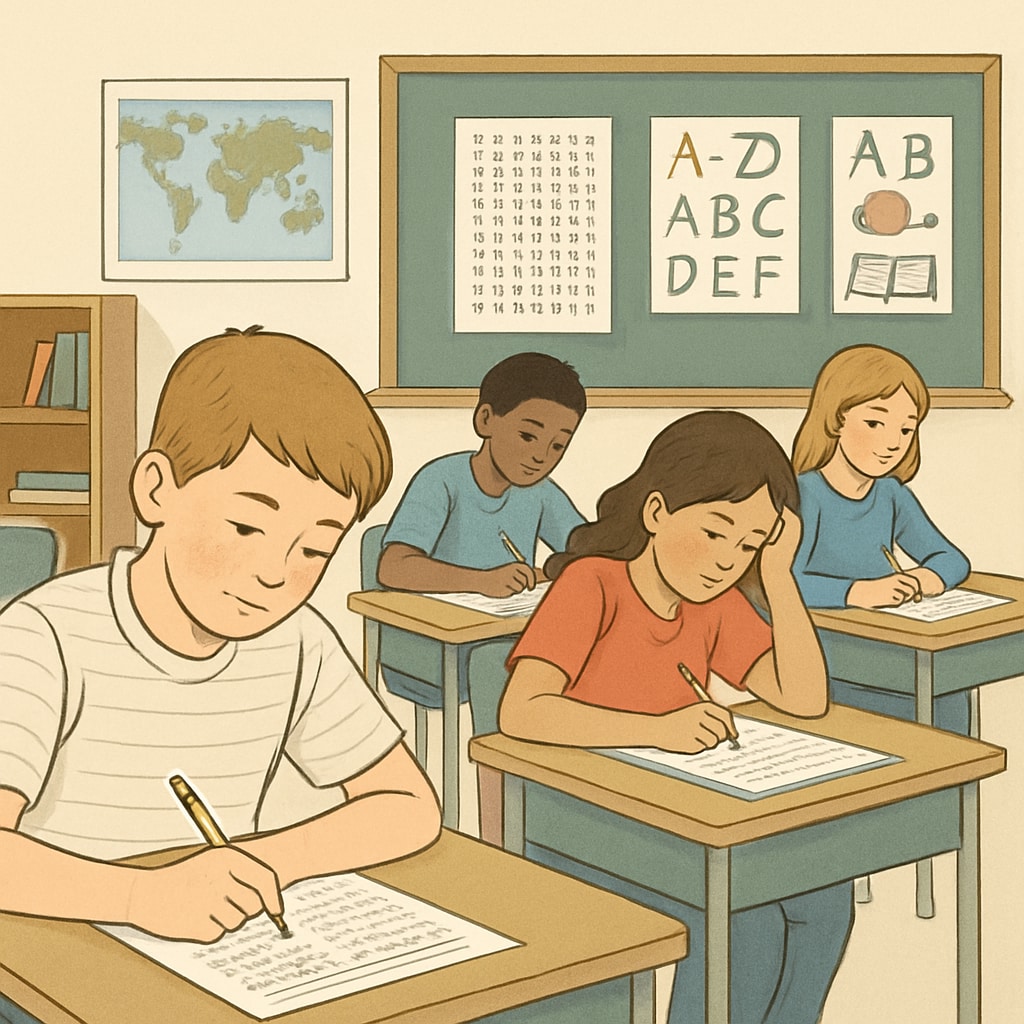Artificial intelligence (AI) has revolutionized industries worldwide, and its impact on education is undeniable. In the context of K12 education, the traditional model of competitive exams faces significant challenges as AI reshapes how we evaluate and nurture talent. This article examines the limitations of current evaluation systems and argues for reforming competitive exams to better align with the demands of the AI era.
Why Traditional Competitive Exams Fall Short in the AI Era
For decades, competitive exams have been the cornerstone of talent selection in education systems globally. However, these tests often prioritize rote memorization and standardized answers over critical thinking, creativity, and real-world problem-solving skills. With the advent of AI, these limitations are becoming increasingly evident. AI tools can now outperform humans in tasks requiring memorization or basic analytical skills, raising questions about the relevance of traditional exams in identifying unique human potential.

Furthermore, competitive exams frequently fail to account for diverse learning styles and individual strengths. As a result, many students with exceptional abilities in non-traditional domains—such as creativity, collaboration, or ethical reasoning—are overlooked. This one-size-fits-all approach is ill-suited for an AI-driven world that values adaptability and innovation. According to Britannica, standardization can often limit the scope of what is measured, excluding critical soft skills crucial for future success.
Redefining Talent Selection for the AI Age
In the AI era, education systems must shift from assessing knowledge retention to evaluating broader competencies. This involves emphasizing skills that complement AI rather than compete with it. For example, while AI excels at processing information, humans bring unique strengths in empathy, ethical judgment, and creative problem-solving. Competitive exams should be redesigned to assess these qualities.
To achieve this, education policymakers could consider the following approaches:
- Portfolio-based assessments: Encouraging students to compile projects, presentations, and other creative works over time can provide a more holistic view of their abilities.
- Scenario-based evaluations: Designing real-world simulations or case studies can help measure critical thinking, collaboration, and decision-making skills.
- AI-enhanced feedback: Leveraging AI tools to provide personalized insights into students’ strengths and areas for growth, moving beyond simple pass-or-fail outcomes.
Such changes would not only improve fairness in talent selection but also better prepare students for the dynamic demands of the 21st-century workforce.

The Role of AI in Shaping Future Evaluation Systems
Far from being a threat to education, AI can serve as a powerful ally in transforming competitive exams. For instance, AI-driven adaptive testing can tailor questions to the skill level of individual students, providing a more accurate measure of their capabilities. This can reduce test anxiety and make exams more inclusive for diverse learner profiles.
Additionally, AI can help identify hidden talents by analyzing patterns in students’ work and suggesting alternative career paths or areas of interest. This aligns with the idea of nurturing diverse talents, as highlighted by Wikipedia, where AI is described as a tool to enhance human potential rather than replace it.
However, integrating AI into education systems also requires ethical considerations, such as ensuring data privacy and avoiding biases in AI algorithms. Policymakers must address these challenges to fully realize the potential of AI in education.
Conclusion: Building a Future-Ready Education System
In conclusion, the rise of artificial intelligence demands a fundamental rethinking of competitive exams in K12 education. Traditional models that emphasize rote learning and uniformity are no longer sufficient in a world that values innovation, adaptability, and diversity. By leveraging AI and adopting new assessment methods, education systems can create a more inclusive and effective framework for talent selection. This transformation is not just a necessity but an opportunity to prepare the next generation for the challenges and opportunities of the AI-driven future.
As we move forward, it is crucial for educators, policymakers, and technologists to collaborate in building an evaluation system that truly reflects the multifaceted nature of human potential. The path may be challenging, but the rewards—a more equitable and future-ready education system—are well worth the effort.
Readability guidance: This article incorporates short paragraphs, clear headings, and bullet points to ensure readability. Transition words like “however,” “therefore,” and “in addition” are used to improve flow. The active voice is preferred throughout, with minimal passive constructions.


